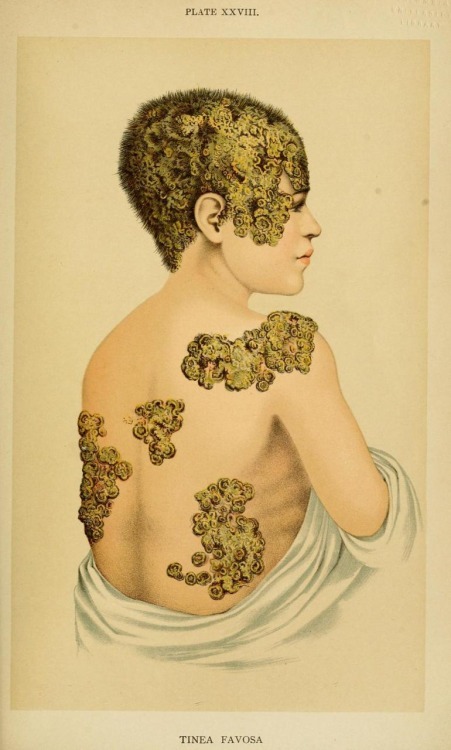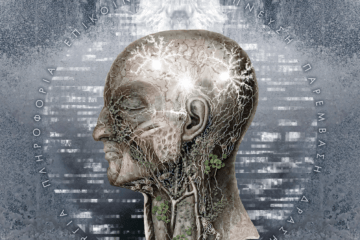Amicitiae nostrae memoriam spero sempiternam fore
I hope that the memory of our friendship will be everlasting.
Espero que a memória da nossa amizade seja eterna.
“Amicitiae nostrae memoriam spero sempiternam fore” é uma citação da obra de Marcus Tullius Cicero (De senectute, De amicitia, Paradoxa, and Somnium Scipionis). O excerto completo é: “Espero que a memória da nossa amizade seja preservada para sempre, e isto dá-me tanto mais prazer porque no curso da nossa história nem sequer três ou quatro dos nossos amigos são lembrados pelo nome, e eu acredito que há esperança de que a amizade de Scipio e Laelius seja conhecida para a posteridade entre esses.”
A ilustração original da figura humana mostra um paciente afectado por Tinea Favosa, tal como se encontra representado no livro “An American text-book of the diseases of children”, de Louis Starr, Md. (1900).

Por cima das cabeças das figuras são visíveis dois dragões, datados de 1244, da autoria do artista chinês Chen Rong (陳容; pinyin: Chén Róng, ca. 1200–1266) que criou talvez o mais famoso quadro asiático de dragões a tinta – o pergaminho dos nove dragões (九龍圖卷, pinyin: Jiǔ long tú juǎn). O pergaminho tem cerca de meio metro de largura e mais de 10 metros de comprimento, sendo um dos maiores conhecidos. Aqui se reproduz um fragmento do mesmo:

Os resplendores das figuras humanas contêm excertos de um poema alquímico do físico, astrólogo, mago e alquimista Simon Forman (1552-1611):
“Into darkness then did descend the spirit of God,
Upon the watery chaos, whereon he made his abode.
Which darkness then was on the face of the deep,
In which rested the Chaos, and in it all things asleep.
Rude, unformed, without shape, form or any good,
Out of which God created all things as it stood.
But first he commanded a light to appear,
That all might be seen, that before was hid.
And God saw that the light was good and clear,
And the darkness and light he did then divide,
Calling the one day, and the other night,
For darkness [to] obscure (and day for shining bright).
And a firmament then God did let make,
To sever the waters above from those below;
And divided the Earth from the waters also,
Wherein greatly his power he did show.
Then out of this Chaos, the four elements were made:
Heat and cold, moist and dry, in like wise,
Which are the beginning of all creatures wide,
That under the globe of Luna do abide.
The quintessence (that some men it call)
Was taken out of the Chaos before the four elements all:
Which is the first being, as we may descry,
And uncorruptible, whereof was made the sky,
And celestial bodies all, which do never die.
(…)”
Pode ver o poema na sua totalidade aqui.



